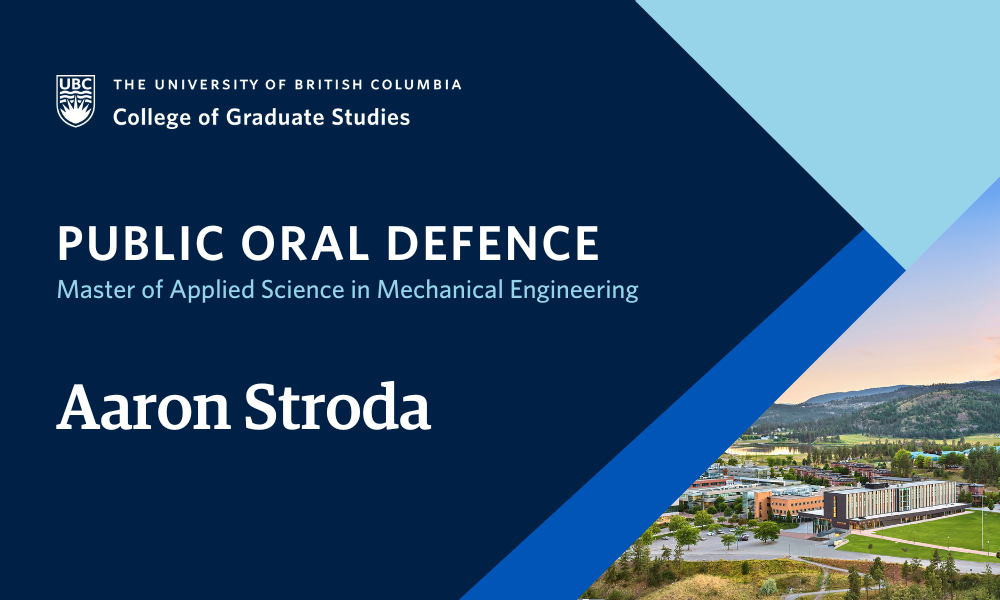
- This event has passed.
Thesis Defence: Modeling the storage and transport of liquefied natural gas
March 15, 2024 at 1:00 pm - 5:00 pm

Aaron Stroda, supervised by Dr. Joshua Brinkerhoff, will defend their thesis titled “Modeling the storage and transport of liquefied natural gas” in partial fulfillment of the requirements for the degree of Master of Applied Science in Mechanical Engineering.
An abstract for Aaron Stroda’s thesis is included below.
Defences are open to all members of the campus community as well as the general public. Registration is not required for in person defences.
ABSTRACT
Understanding the behaviour of Liquefied Natural Gas (LNG) is critical to appropriately designing the next generation of storage tanks used in industries ranging from industrial to personal transport, large scale storage, and distribution infrastructure. Simulation tools are an important part of this design process and having the right tool to use in these situations is critical. This thesis looks at the issue of simulation tools from the view of Computational Fluid Dynamics (CFD) via two related sub-studies. The first study examines the simulation of sloshing and vibrating LNG undergoing heat transfer within a Westport Fuel Systems R medium-sized on-truck fuel tank undergoing motion that is representative of a truck operating in an urban environment. The second study develops a method to simulate multiple miscible components of LNG simultaneously withing a Volume of Fluid (VOF) framework in order to simulate layering and compositional exchanges that occur in real LNG mixtures within a 3D domain. Both studies are conducted using OpenFOAM, an open-source CFD library. In the first sub-study, adequate performance is achieved during sloshing trials in the Westport Fuel Systems tank and it is concluded that, the effect of vibrations must not be ignored for modeling the storage of LNG in on-truck tank applications.
In the second sub-study, promising results and validations are shown using Fick’s law of diffusion for a ternary component system where each component is tracked individually. As a relatively simple and cost effective approach to modeling multicomponent miscible mixtures, it shows promise for use in modeling behaviour of LNG.